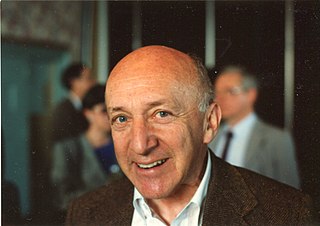A Quote by Alison Gopnik
I wanted to answer big questions about humanity, about how it is that we understand about the world, how we can know as much as we do, why human nature is the way that it is. And it always seemed to me that you find answers to those questions by looking at children.
Related Quotes
I won't call my work entertainment. It's exploring. It's asking questions of people, constantly. 'How much do you feel? How much do you know? Are you aware of this? Can you cope with this?' A good movie will ask you questions you don't already know the answers to. Why would I want to make a film about something I already understand?
I just would like to say that over more than a quarter-century as a scientist and a believer, I find absolutely nothing in conflict between agreeing with Richard [Dawkins] in practically all of his conclusions about the natural world, and also saying that I am still able to accept and embrace the possibility that there are answers that science isn't able to provide about the natural world - the questions about why instead of the questions about how. I'm interested in the whys.
At teenage parties he was always wandering into the garden, sitting on a bench in the dark . . . staring up at the constellations and pondering all those big questions about the existence of God and the nature of evil and the mystery of death, questions which seemed more important than anything else in the would until a few years passed and some real questions had been dumped into your lap, like how to earn a living, and why people fell in and out of love, and how long you could carry on smoking and then give up without getting lung cancer.
One of the big misapprehensions about mathematics that we perpetrate in our classrooms is that the teacher always seems to know the answer to any problem that is discussed. This gives students the idea that there is a book somewhere with all the right answers to all of the interesting questions, and that teachers know those answers. And if one could get hold of the book, one would have everything settled. That's so unlike the true nature of mathematics.
The cool thing about Watchmen is it has this really complicated question that it asks, which is: who polices the police or who governs the government? Who does God pray to? Those are pretty deep questions but also pretty fun questions. Kind of exciting. It tries to subvert the superhero genre by giving you these big questions, moral questions. Why do you think you're on a fun ride? Suddenly you're like how am I supposed to feel about that?
The great philosophers of the 17th and 18th centuries did not think that epistemological questions floated free of questions about how the mind works. Those philosophers took a stand on all sorts of questions which nowadays we would classify as questions of psychology, and their views about psychological questions shaped their views about epistemology, as well they should have.
[in 1998] I know my political ideas affect what I write but I've tried to follow the facts wherever they land. Every topic I've written about begins as a question. How do police departments behave? Why do bureaucracies function the way they do? What moral intuitions do people have? How do courts make their decisions? What do blacks want from the political system? I can honestly say I didn't know the answers to those questions when I began looking into them.





































